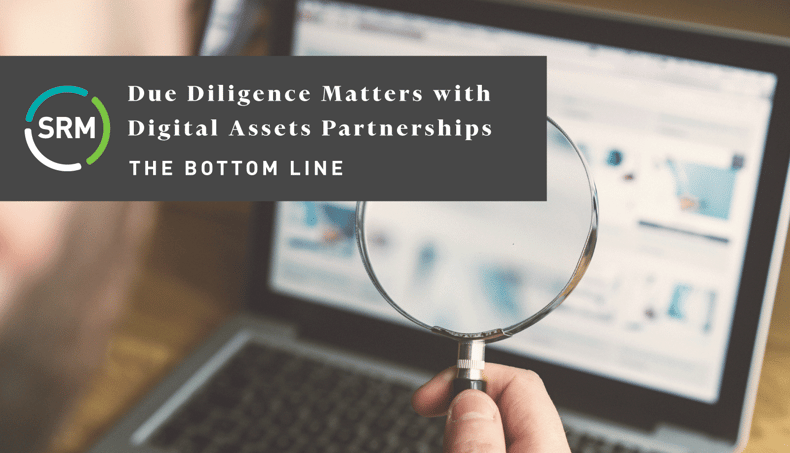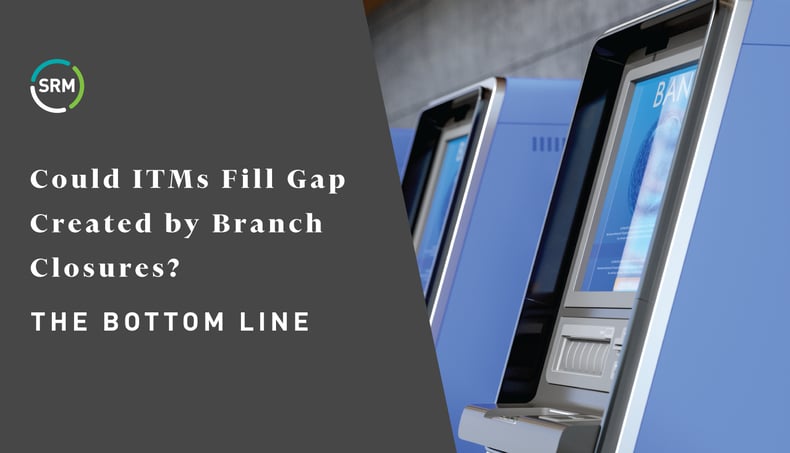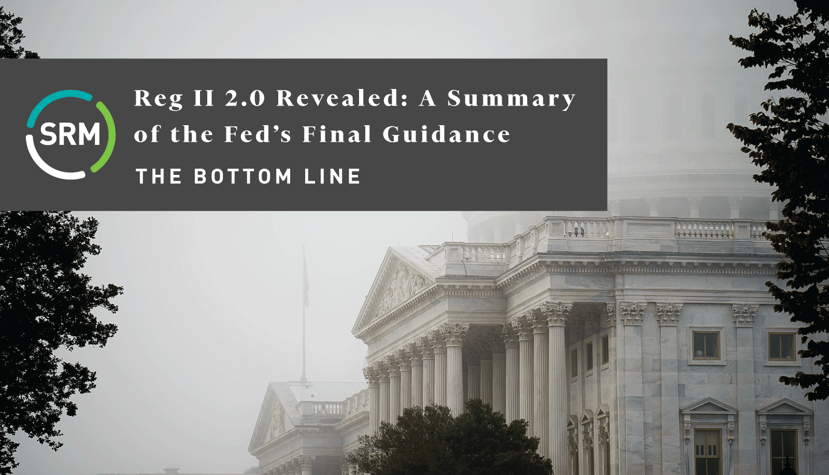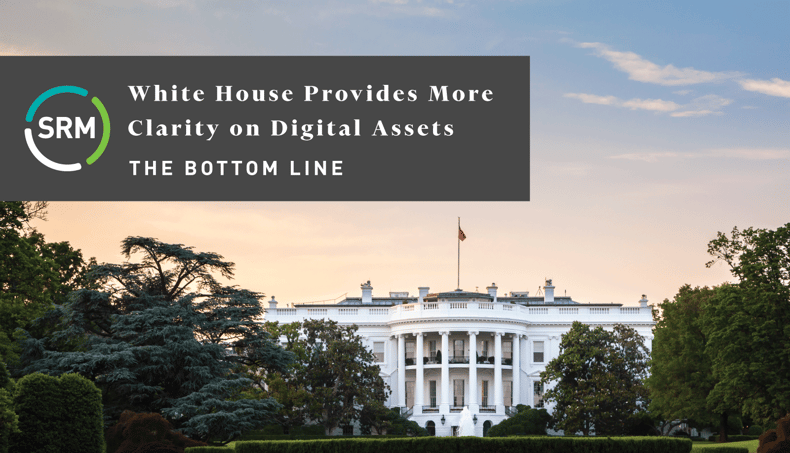
Federal regulators continue to advise on how banks and credit unions conduct due diligence for digital assets solution providers.
A lapse in vetting could expose FIs to an array of risks, ranging from reputational impact to non-compliance with government sanctions and BSA requirements.
Read More
Topics:
Fintech,
Vendor Contract Negotiation,
Bank Vendor Management,
Credit Union Vendor Management,
Crypto,
Regulation

Branch networks require significant investment, real estate is getting more expensive, and utilities and security costs are spiking. Offices can also be labour-intensive, assuming financial institutions can attract and retain the right frontline staff.
At the same time, branch traffic is declining, limiting opportunities for locations to generate revenue. If ROI is a primary consideration, it’s getting harder for banks and credit unions to justify having large branch networks.
Read More
Topics:
Vendor Contract Negotiation,
Bank Vendor Management,
Credit Union Vendor Management

It has been almost a year and a half since the Fed had requested public comment on a “non-substantive” proposed amendment to Regulation II that would 1.) specify that the prohibition on network exclusivity applies to card-not-present debit card transactions, 2.) clarify the responsibility of the issuer to enable at least two unaffiliated networks to comply with the prohibition on network exclusivity, and 3.) standardize and explain the use of certain terminology. The proposal was anything but non-substantive and would have fundamentally altered issuers’ compliance obligations under Durbin. The Fed received more than 2,750 comments, and it has taken nearly a year since the comment period was completed to receive a final ruling. The ruling has finally arrived.
Read More
Topics:
Debit Card Interchange,
Durbin Amendment,
Card Networks,
Federal Reserve,
regulation II,
debit card issuers

We're beginning to get some clarity from the White House regarding its approach to digital assets, including the potential development of a Central Bank Digital Currency (CBDC).
With the release of a wide-ranging report, the White House appears to be embracing digital assets and their potential for transparent, cost-efficient, and inclusive financial services. A background press call provided even more insight into the Biden Administration's thinking.
Read More
Topics:
Payments,
Cryptocurrency,
Digital Assets,
CBDC,
Blockchain,
Regulation,
Digital Ledger Technology
![SRM-Sept2022-BlogImage_Updated[6]](https://blog.srmcorp.com/hs-fs/hubfs/SRM-Sept2022-BlogImage_Updated%5B6%5D.jpg?width=1600&name=SRM-Sept2022-BlogImage_Updated%5B6%5D.jpg)
Banks and credit unions interested in offering Buy Now, Pay Later (BNPL) services should be pleased with the latest report from the Consumer Financial Protection Bureau (CFPB).
Many FIs have been reluctant to dive into the popular consumer offering, largely due to uncertainty over the regulatory environment. SRM asserted in a recent report that banks and credit unions have the experience and tools necessary to handle regulatory scrutiny.
Read More
Topics:
Payments,
Vendor Contract,
Buy Now Pay Later,
BNPL,
CFPB,
Credit Cards
![Treasury-Response-Blog-Image[86]](https://blog.srmcorp.com/hs-fs/hubfs/Treasury-Response-Blog-Image%5B86%5D.jpg?width=1600&name=Treasury-Response-Blog-Image%5B86%5D.jpg)
The Biden Administration's March executive order seeking information on digital assets' usage and security set a flurry of activity into motion. This included a mandate for the Treasury Department to deliver a report on the future of money and payments systems. The agency issued a public request for comment in July, and SRM quickly responded, drawing from our detailed and ongoing coverage of cryptocurrency and other digital assets.
You can read our complete submission here; however, the condensed version below highlights the key points we believe every financial institution should consider as policies toward digital assets take shape.
Read More
Topics:
Payments,
Cryptocurrency,
Digital Assets,
Stablecoins,
Blockchain,
Regulation,
Digital Ledger Technology
![OCC-Order-Blog-Image[52]](https://blog.srmcorp.com/hs-fs/hubfs/OCC-Order-Blog-Image%5B52%5D.png?width=1600&name=OCC-Order-Blog-Image%5B52%5D.png)
Banks and credit unions have a new roadmap for handling fintech partnerships.
The Office of the Comptroller of the Currency (OCC) just issued a written agreement to Blue Ridge Bankshares instructing the Charlottesville, Va., company to improve how it pursues and monitors fintech relationships.
The agreement comes months after the OCC raised issues with Blue Ridge’s ($2.8 billion-asset) proposed merger with FVCBankcorp (the deal was ultimately terminated). While the specific issue was never disclosed, there was speculation it had to do with Blue Ridge’s fintech dealings.
Read More
Topics:
Payments,
Fintech,
Vendor Contract,
BaaS,
Regulators,
BSA
![CCCA-Blog-Image[10]](https://blog.srmcorp.com/hs-fs/hubfs/CCCA-Blog-Image%5B10%5D.png?width=1600&name=CCCA-Blog-Image%5B10%5D.png)
Ever since the Durbin Amendment upended the debit card industry in 2010, insiders have speculated that Sen. Richard Durbin (D-Ill.) would eventually pursue similar changes to the credit card industry.
Sen. Durbin made it known during a May 2022 Senate Judiciary Committee meeting that credit card reform was in his crosshairs. As inflation rose, he found a bipartisan partner in Sen. Roger Marshal (R-Kan.) and introduced bill S.4674, the Credit Card Competition Action of 2022.
This bill reflects many principles Reg II applied to routing, intending to increase competition and reduce merchant costs. If this bill becomes law, it will have significant consequences for issuers and consumers, potentially completely upending credit access as we know it today. It could also lead some issuers to dial back rewards and benefits.
Read More
Topics:
Durbin Amendment,
Interchange,
Fee Income,
Credit Cards
![Metaverse-Blog-Image[18]](https://blog.srmcorp.com/hs-fs/hubfs/Metaverse-Blog-Image%5B18%5D.png?width=1600&name=Metaverse-Blog-Image%5B18%5D.png)
A Google search for "metaverse" results in roughly 203 million results – an overwhelming number of options for learning more about an emerging digital world.
But what exactly is the metaverse? And what does it mean for financial institutions now and in the future?
As I shared in a recent article, the metaverse is a vision, not just a technology. It's a virtual world driven by the thriving global gaming culture that lets people create an entirely virtual version of themselves.
In that world, users create and pursue unique experiences. Much like the real world, some form of currency is necessary, providing opportunities for banks and credit unions.
Read More
Topics:
Cryptocurrency,
Digital Assets,
Banking in the Metaverse,
MetaFi,
Metaverse,
Crypto Wallets,
Virtual Reality
![30-Year-Anniversary-Blog-Image[5]](https://blog.srmcorp.com/hs-fs/hubfs/30-Year-Anniversary-Blog-Image%5B5%5D.png?width=1600&name=30-Year-Anniversary-Blog-Image%5B5%5D.png)
Sometimes it’s hard to believe 30 years have passed since our founder Curtis Downs took the concept of developing contract benchmarks and applying them to help banks, credit unions, and others achieve critical savings – the underlying value proposition behind SRM. That foundation has allowed our clients to add more than $5 billion to their bottom line over the years.
It's fascinating to look back three decades and see the rate of change that has taken place in the financial services industry. As we acknowledge our company’s 30th anniversary this year, I want to highlight some significant changes in financial services that have also challenged and motivated SRM to evolve.
Read More
Topics:
Payments,
Digital Banking,
Vendor Contract,
Interchange,
Regulation




![SRM-Sept2022-BlogImage_Updated[6]](https://blog.srmcorp.com/hs-fs/hubfs/SRM-Sept2022-BlogImage_Updated%5B6%5D.jpg?width=1600&name=SRM-Sept2022-BlogImage_Updated%5B6%5D.jpg)
![Treasury-Response-Blog-Image[86]](https://blog.srmcorp.com/hs-fs/hubfs/Treasury-Response-Blog-Image%5B86%5D.jpg?width=1600&name=Treasury-Response-Blog-Image%5B86%5D.jpg)
![OCC-Order-Blog-Image[52]](https://blog.srmcorp.com/hs-fs/hubfs/OCC-Order-Blog-Image%5B52%5D.png?width=1600&name=OCC-Order-Blog-Image%5B52%5D.png)
![CCCA-Blog-Image[10]](https://blog.srmcorp.com/hs-fs/hubfs/CCCA-Blog-Image%5B10%5D.png?width=1600&name=CCCA-Blog-Image%5B10%5D.png)
![Metaverse-Blog-Image[18]](https://blog.srmcorp.com/hs-fs/hubfs/Metaverse-Blog-Image%5B18%5D.png?width=1600&name=Metaverse-Blog-Image%5B18%5D.png)
![30-Year-Anniversary-Blog-Image[5]](https://blog.srmcorp.com/hs-fs/hubfs/30-Year-Anniversary-Blog-Image%5B5%5D.png?width=1600&name=30-Year-Anniversary-Blog-Image%5B5%5D.png)


